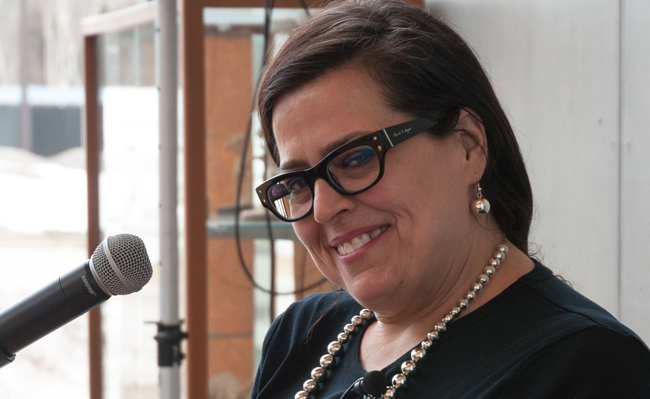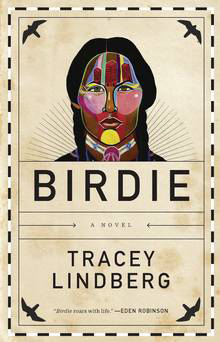First Nation author’s teachings in schools across Canada

 By Kelly Anne Smith
By Kelly Anne Smith
NORTH BAY – Reading Birdie, one becomes uneasy with her hard life. Writing Birdie, author Tracey Lindberg melded Pimatisewin – which in the Cree language means “the good life” with the “tree of life” emphasizing ancestors, relationships and love.
Lindberg recently spoke at Nipissing University, hosted by The Office of Aboriginal Initiatives Enji Giigdoyang. She is inspiring to listen to. She journey as an Indigenous Law Professor began with the Kelly Lake Cree Nation in Northern BC.
Lindberg received a lot of media attention lately when Birdie, her first novel which is #2 on the bestsellers list, was invited to CBC Canada Reads. Bruce Poon Tip, who championed the book in the contest, ended up giving 10,000 copies of the book to schools across Canada. The Calgary businessman argued that Birdie gives voice to indigenous women and helps reconciliation between Canada and First Nations, Métis and Inuit communities.
The book’s character Birdie lived an unsettled life with sexual abuse and left her clan in Alberta’s north to chase a fictional man from TV, in Gibsons, B.C. Birdie’s strength overcomes her stuck state-anguish shutting down her body.
At the end of the book, in a section for educators, Lindberg explains that the prose has a shifting verb tense because Bernice is a time and space shifter. Her unsettled life and state of mind is portrayed with the technique. She finally breaks free to take her rightful place in her community. Love and respect kept a protective blanket around her as she healed.
Tanya Lukin-Linklater, Director of Aboriginal Initiatives at Nipissing University thought Lindberg gave a phenomenal talk. “It was quite powerful. I was thinking about the novel as she was speaking about it in terms of the relationship, in the ways we are with each other. It is the Indigenous Law she speaks about, in her region. The book is being used as a text in four law courses that she is aware of.
There is a way in which she is speaking about good relationships and ways to being with one another, and connecting that to our Nations. I really hope that people will begin to think differently based on folks like Tracey Lindberg, who have a deep understanding and spent many years investigating Indigenous law with her Elders and mentors.
A man spoke to Lindberg first in Cree and then English. “I wanted to acknowledge the structure that you articulate. When Indigenous artists, writers, and poets know that structure, the structure articulates itself in those forms in a strong way.”
Lindberg thanked him for translating in Cree. “There is a gift in the room to have people who speak the language and understand it. Part of the struggle for those who don’t have access to it is feeling like it is our language. Neil McLeod said to me, “Just listen to that Cree radio station.” Lindberg laughed out, “You know, to learn how to pronounce it. When I hear people speak it, I feel a flash of envy but such pride. I hear it wherever I go when I am speaking (in public). It shows up in Montreal. It shows up in Toronto. There is always someone who knows Cree around me, and I feel blessed when they are in the room.
At the end of her talk, Lindberg was presented with gifts. Lukin-Linklater said, “We want to share with you, a journal to keep writing and some tobacco and sweet grass for your journey. I want to send you in ‘A Good Way’.”

